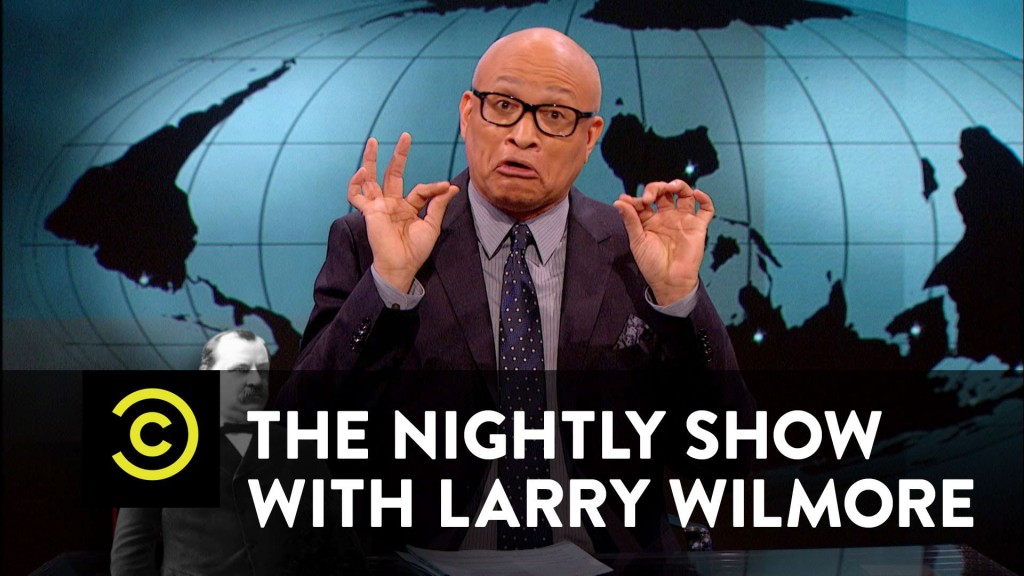The late night talk show genre is pretty saturated. To start with, you’ve got your Jon Stewart and your John Oliver, your Jimmys Kimmel and Fallon. And those are just a few.
And now there’s a new option. To fill the 11:30 p.m. time slot vacated by Stephen Colbert, who will be taking over David Letterman’s spot at CBS at the end of the year, Comedy Central has produced something new. Following Jon Stewart is now “The Nightly Show” hosted by Larry Wilmore.
Wilmore, a former “black correspondent” for “The Daily Show,” is a different sort of host than the others. Instead of enjoying a perch of authority from which he can mock celebrities and pundits, he seems a little less sure of himself. His voice is a little squeaky, and he’s more affable than acerbic. Maybe it’s just first-week jitters, but he seems a little more willing to let his guests explain themselves than argue with them. Oh, and he’s black.
Look around at other late night talk show hosts. They’re almost all white dudes. Michele Ganeless, Comedy Central’s president, told The New York Times that one of her plans for “The Nightly Show” is “to have different people from the comedy community come on and have a platform to give their point of view.” In the early phases of “The Nightly Show,” it was named “The Minority Report.”
In its current form, “The Nightly Show” doesn’t have many YouTube-ready segments like some other talk shows do. Fallon’s wacky stunts are engineered for maximum virality. Kimmel has done well online with “Mean Tweets” and “Lie Witness News.” Oliver’s long, funny explainers of serious subjects have racked up millions of views. And no one matches Stewart when it comes to catching someone at their most hypocritical and spinning the situation into hilarity.
Wilmore does none of that. Each episode of his show revolves around a specific, timely topic — Cuba, Bill Cosby, the State of the Union address — and each segment approaches the topic in a different way. In the first segment, Wilmore performs a stand-up routine riffing on the subject. In the second, he introduces four guests — instead of one guest who’s on the show to promote something, as most talk shows do — where they all discuss the episode’s topic. Some of the guests are Wilmore’s comedian friends and writers on the show, but he also mixes in people with a little more intellectual heft, like New Jersey senator Cory Booker, and New Yorker editor David Remnick. The third segment is devoted to “Keep it 100,” a game in which each guest is asked a tough question and their answer needs to be “100 percent real.” The show closes with Wilmore answering a question from Twitter, like “Do you think someone else would have made a better first black president?”
After a few years of watching “The Daily Show,” Jon Stewart’s outrage becomes predictable, if in a comforting, view-affirming sort of way. Wilmore, on the other hand, has been unexpected in the first few episodes. He doesn’t opt for easy points on racial justice, and he cheerfully announced that he doesn’t care about David Oyelowo’s Oscar snub for “Selma” because he’s “a British brother.”
Because each episode revolves around a single topic instead of covering several news pieces, like Stewart’s show does and Colbert’s show did, some of the discussion on the show is inevitably dated. Much of the discussion in the episode surrounding Obama’s State of the Union address slipped into talk of the 2008 presidential election, and what it was like to vote — or not vote — for the first black president. But even though the topic is dated, the voices sound fresh, because we haven’t heard them before.



